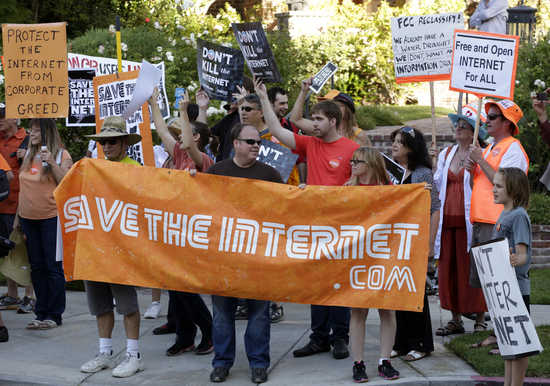Updates on the Net Neutrality Debate

When we last visited the Net Neutrality debate, President Obama had just released a statement urging the FCC to reclassify consumer broadband Internet service as a public utility, Senator Ted Cruz was calling net neutrality the “Obamacare of the Internet,” and the FCC was receiving over four million citizen comments on the issue — the greatest public response it had seen since Janet Jackson’s “wardrobe malfunction” during the 2004 Super Bowl half-time show.
Now the FCC has picked a date (February 26) to vote on net neutrality regulations. FCC Chairman Tom Wheeler will circulate proposed rules on February 5, but hinted that he will employ Title II of the Communications Act to reclassify broadband Internet as a utility.
But new developments in Congress might make those hearings moot: House and Senate Republicans have drafted legislation that would ban the intentional slowing of web traffic (“throttling”) as well as paid prioritizations for content providers willing to pay more for faster delivery (“fast lanes”) — what President Obama called for last year. The legislation would grant the FCC authority to enforce those prohibitions, thus avoiding the “legal gymnastics” that have plagued the agency for years, but it would not give FCC the ability to reclassify Internet as a public utility like water and electricity.
By enshrining into law the key principles of net neutrality, the bill has received support from consumer groups advocating for a free and open Internet. But the legislation has also received criticism from Internet activists who want to see the Internet reclassified as a public utility. The bill expressly restricts the FCC’s power to regulate the Internet under Title II of the Communications Act, a move that supporters praise as preventing FCC “overreach” but that critics call a specious nod to the Internet Service Providers. "While prohibiting some forms of harmful discrimination, [the bill] handcuffs the FCC and prevents them from looking at any other kinds of abuses," said Matt Wood, policy director at the advocacy group Free Press.
House and Senate panels started hearings last week, hearing from witnesses representing both cable television and Internet companies. If 2014 was a “wild ride” for net neutrality, 2015 will see the arcane debate burst open into public consciousness. Whatever the resolution, it is likely to have a profound impact the development of the Internet in the United States.
Photo Credit: Reuters